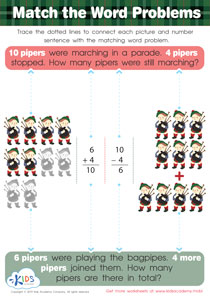Normal Addition Worksheets for Ages 3-7 - Page 2
53 filtered results
-
From - To
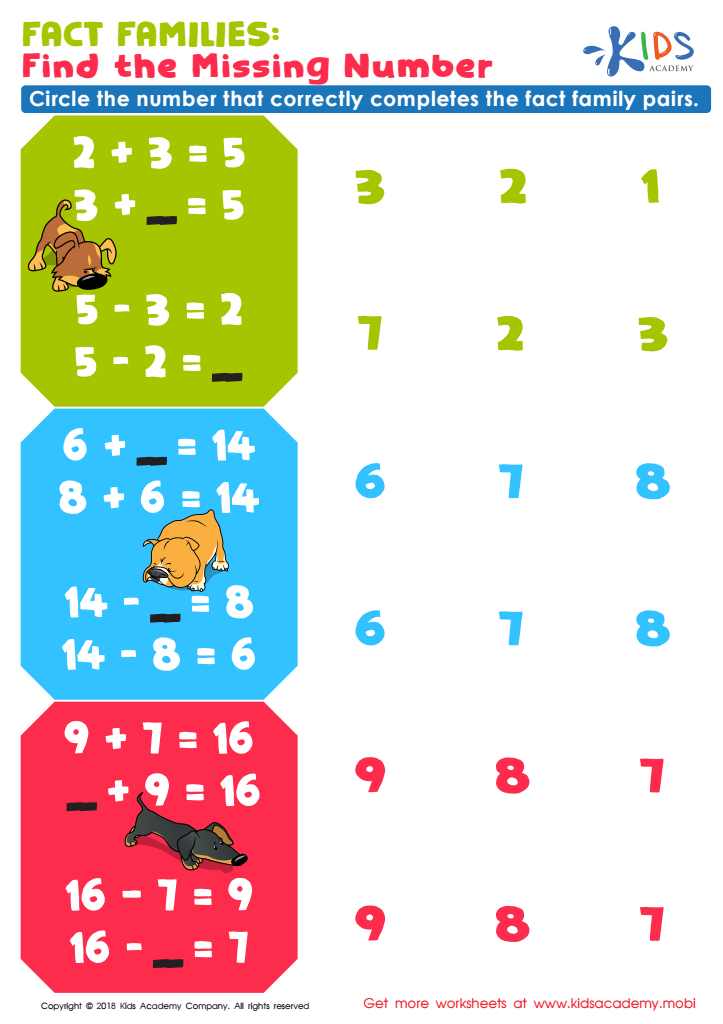

Fact Families: Find Missing Number Worksheet
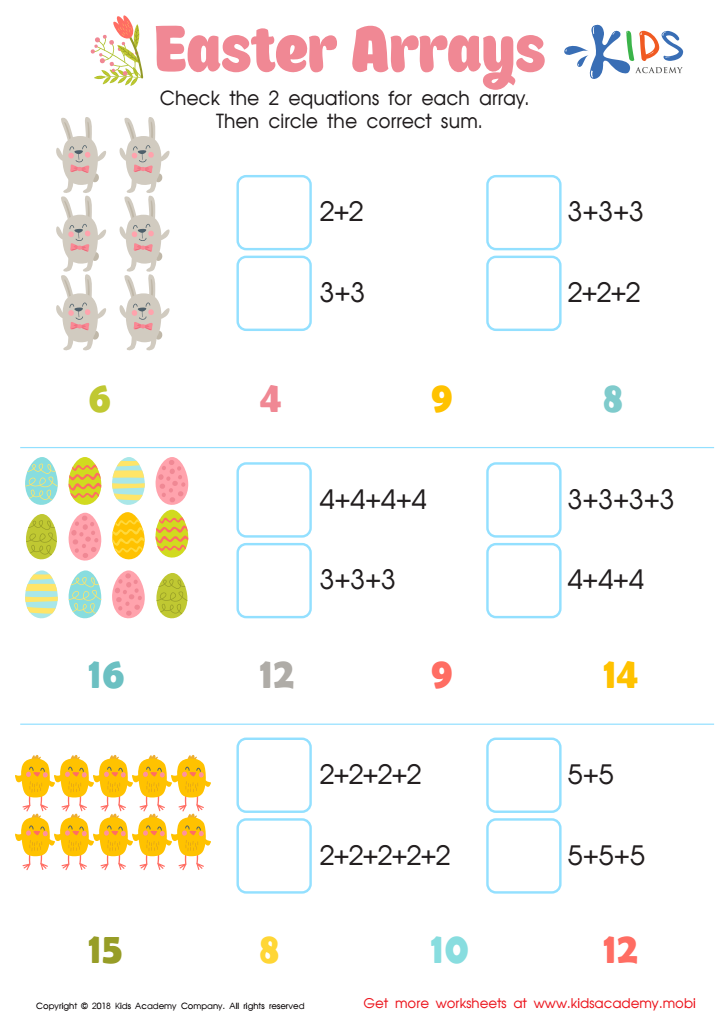

Easter Arrays Worksheet


Tricky Problems Worksheet: Part 2


Tricky Problems Worksheet: Part 1
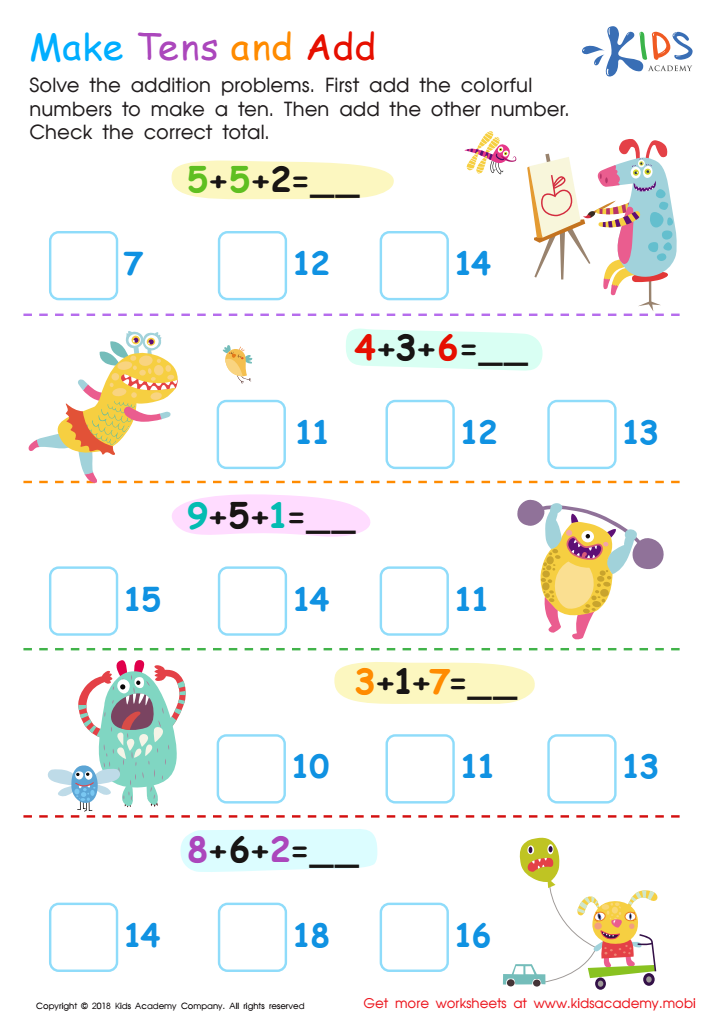

Make Tens and Add Worksheet
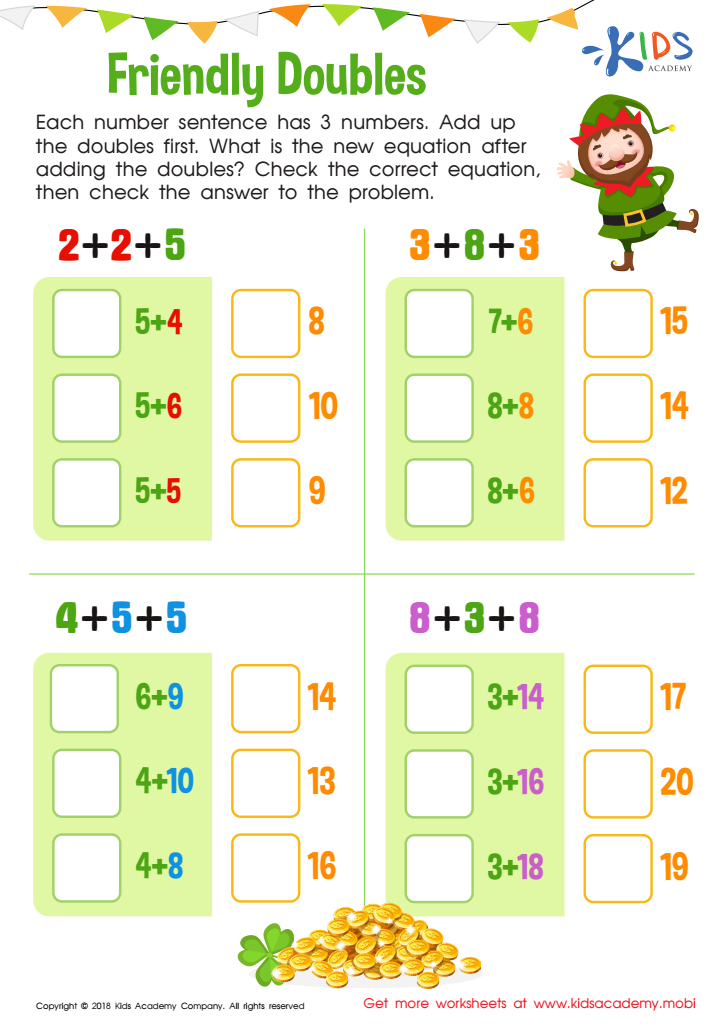

Friendly Doubles Worksheet
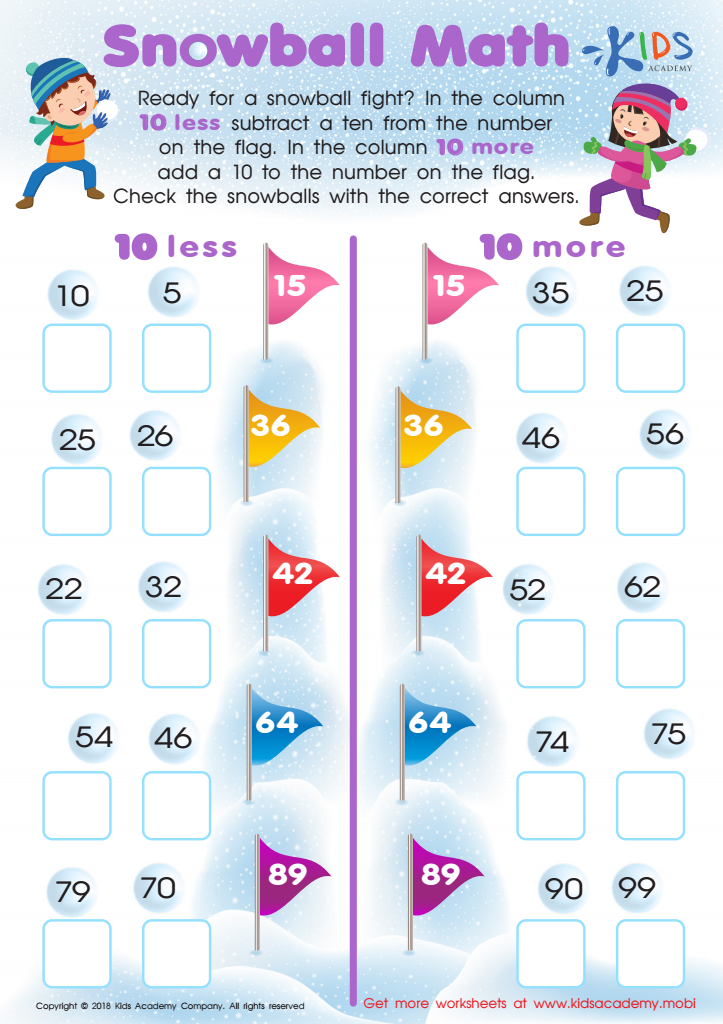

Snowball Math Worksheet
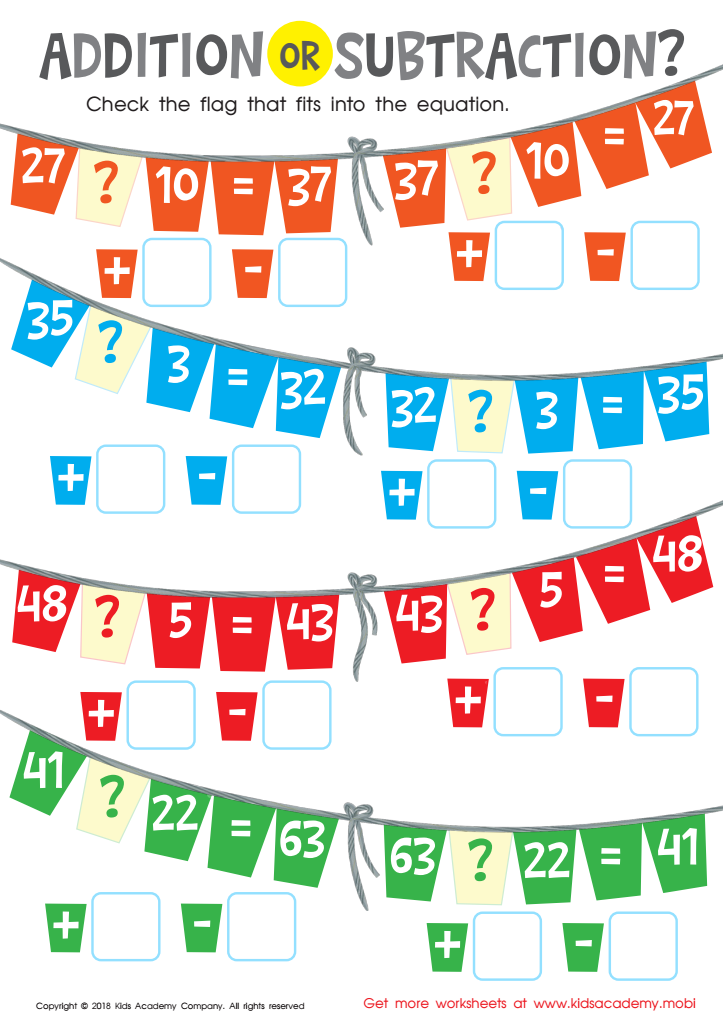

Addition or Subtraction? Worksheet
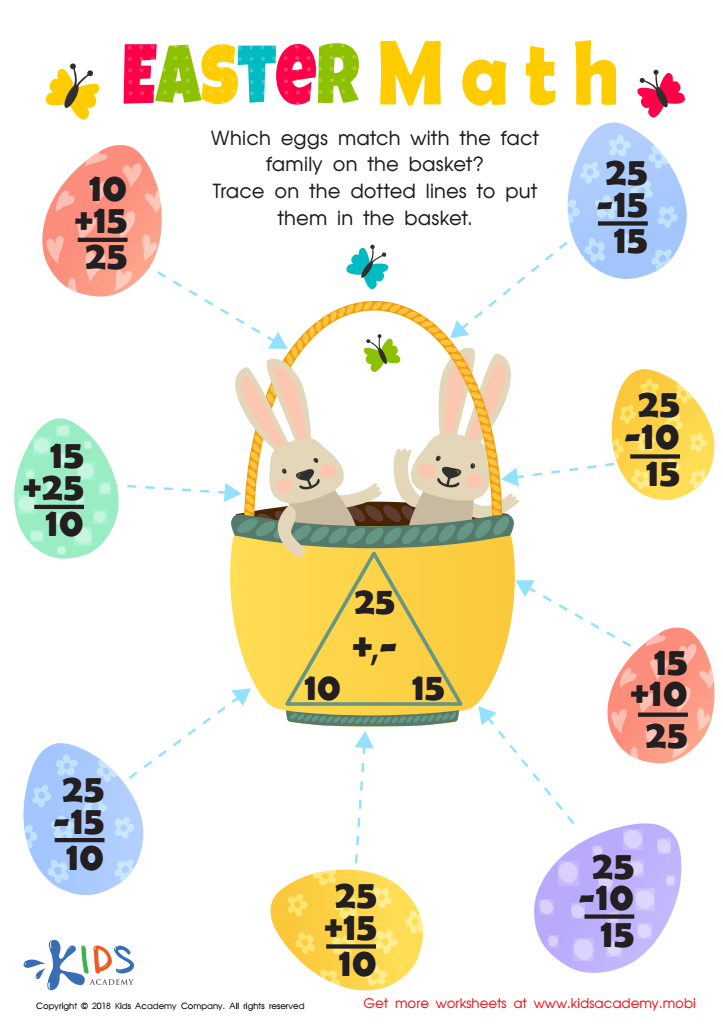

Fact Families: Easter Math Worksheet
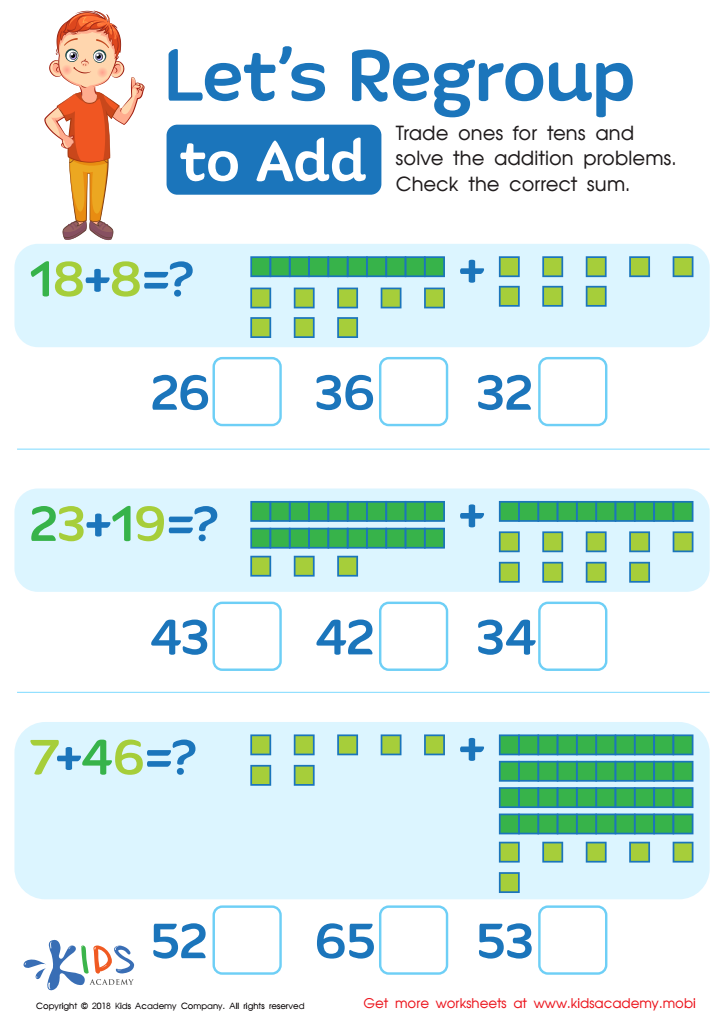

Let's Regroup to Add Worksheet
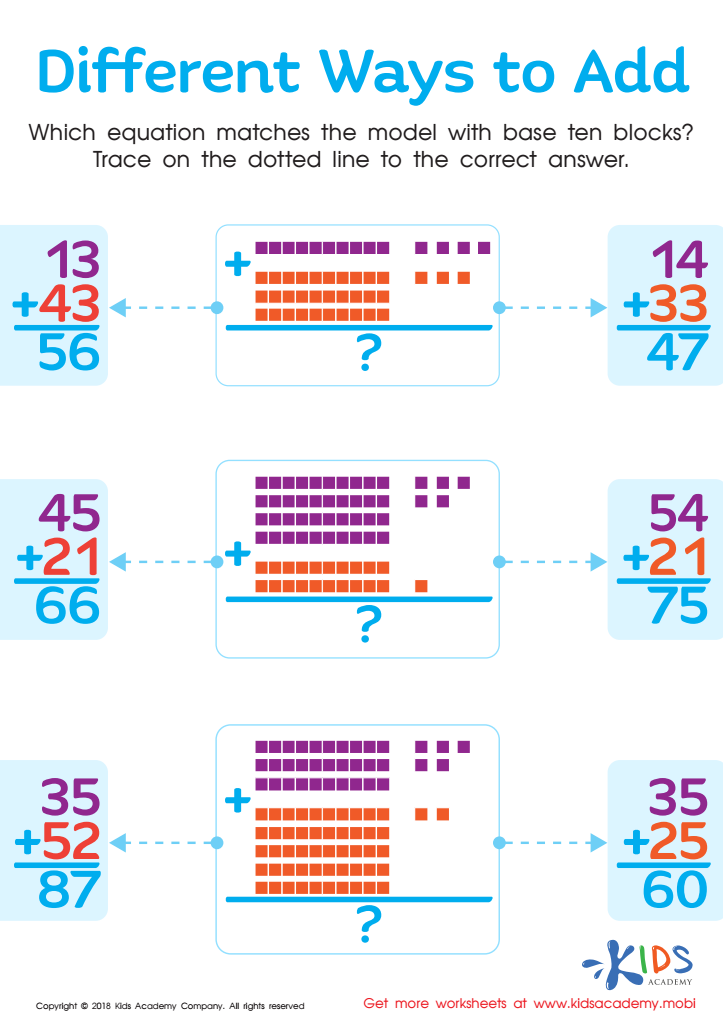

Different Ways to Add Worksheet
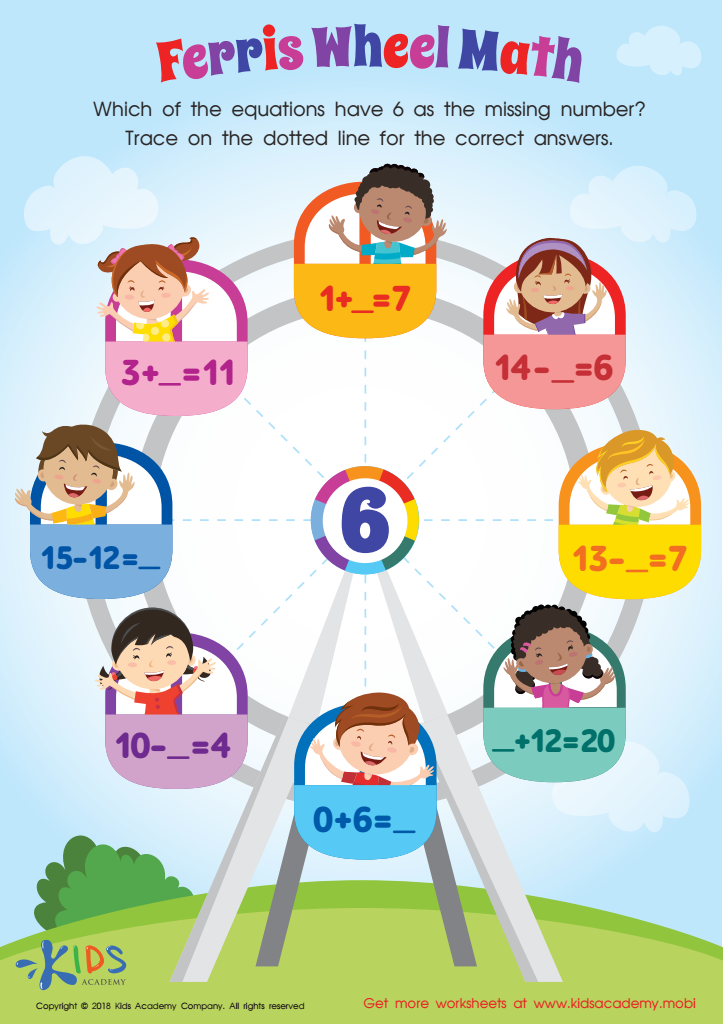

Missing Number: Ferris Wheel Math Worksheet
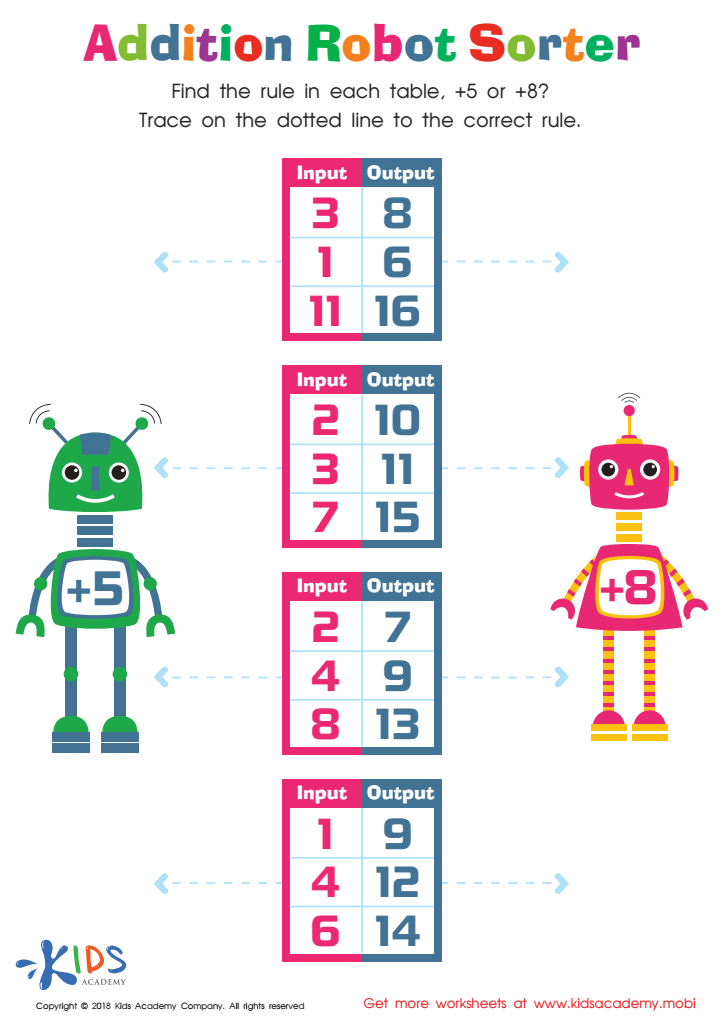

Addition Robot Sorter Worksheet
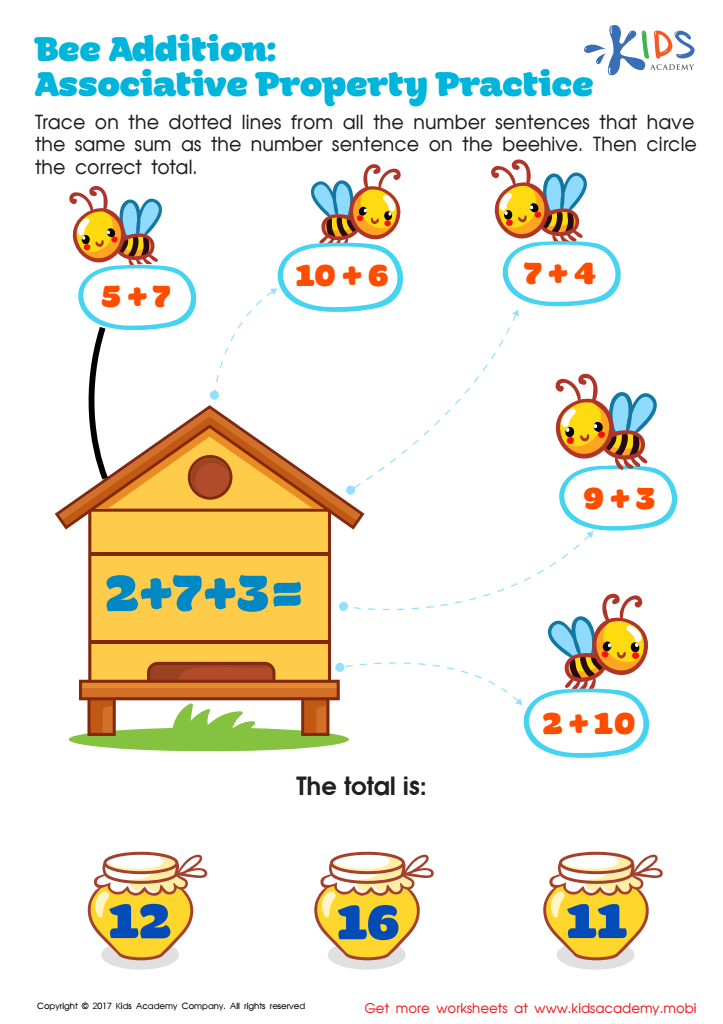

Bee Addition: Associative Property Practice Worksheet
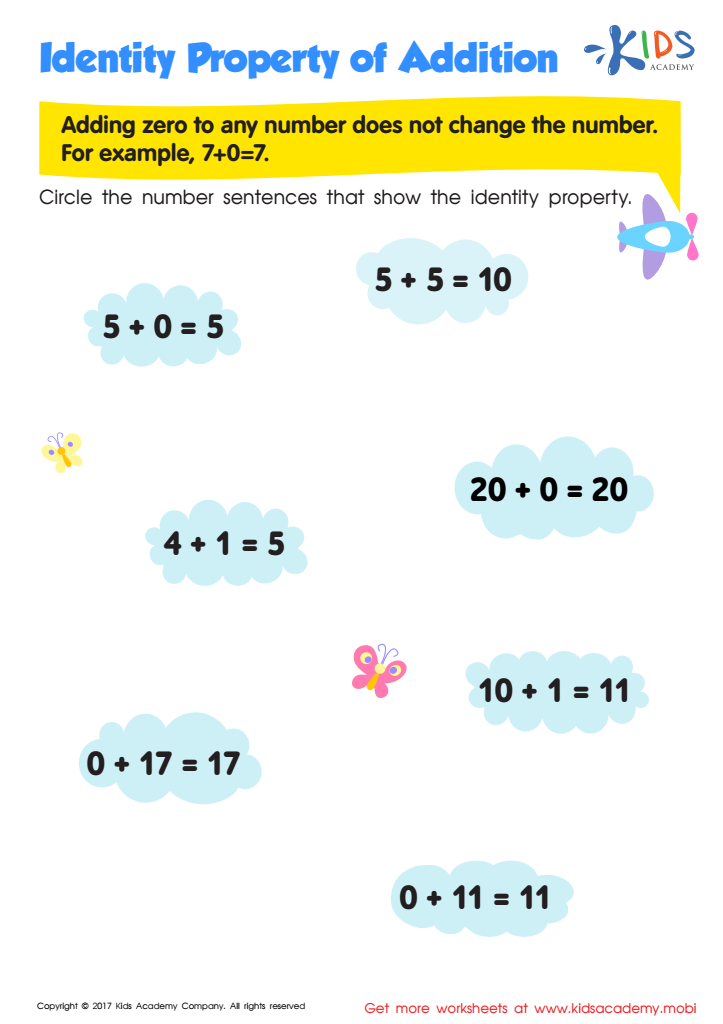

Identity Property of Addition Worksheet
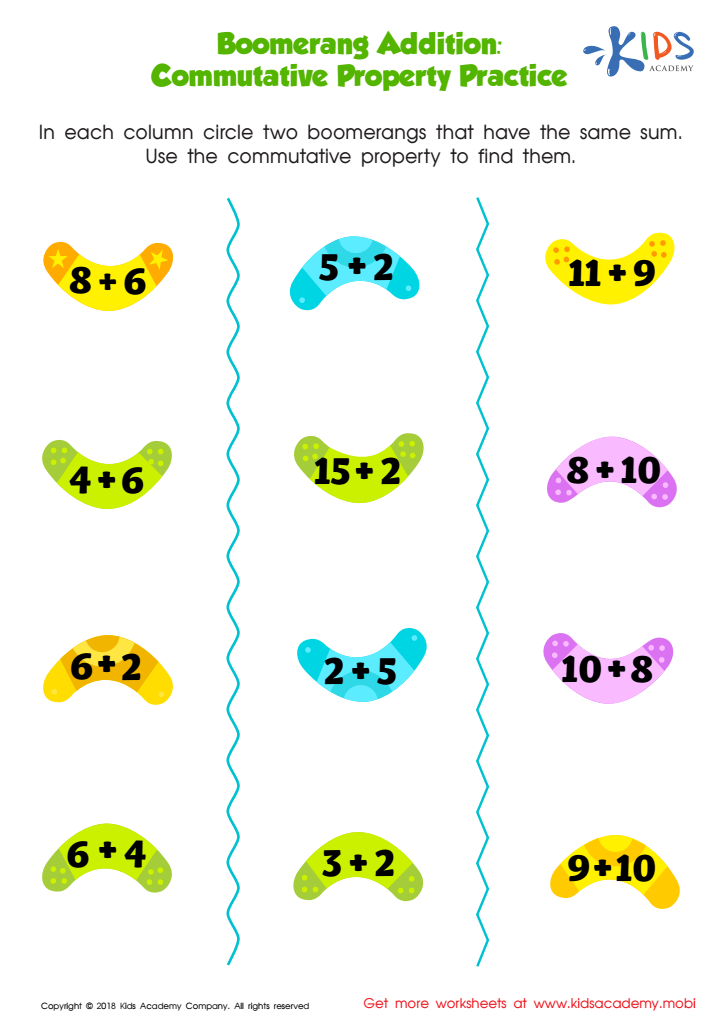

Boomerang Addition Worksheet
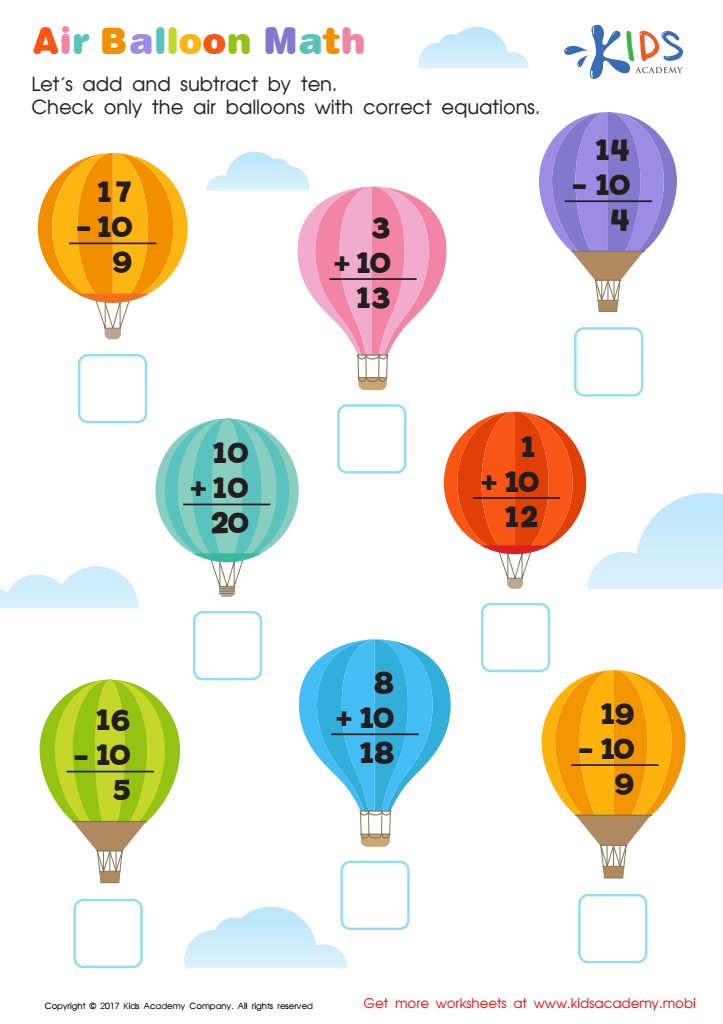

Air Balloon Math Worksheet
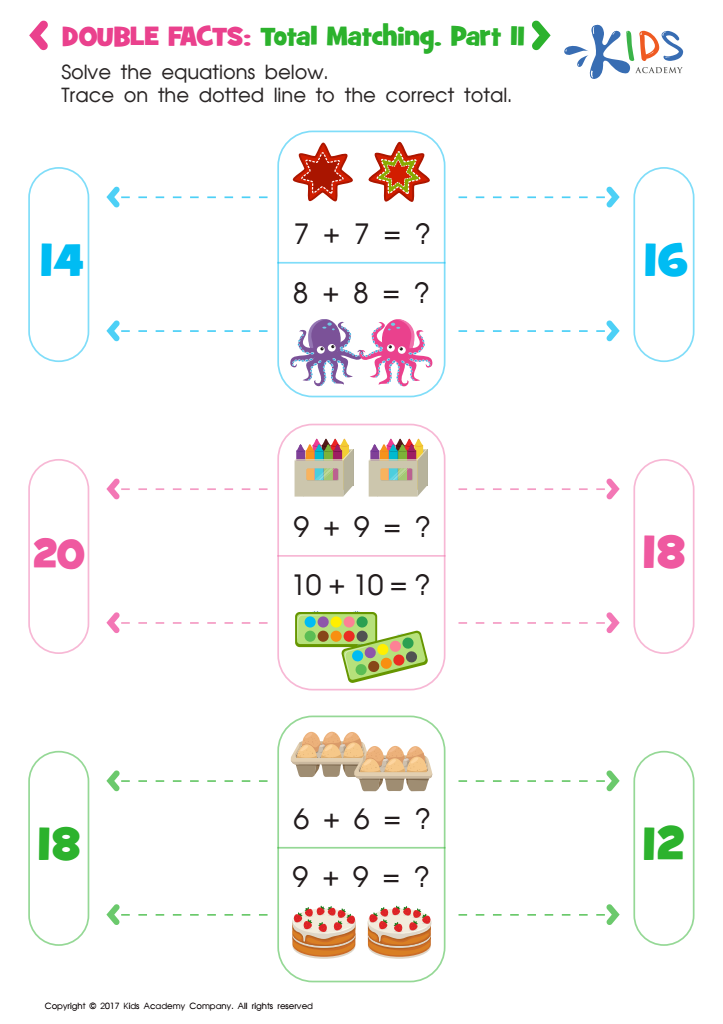

Double Facts: Total Matching 2 Worksheet
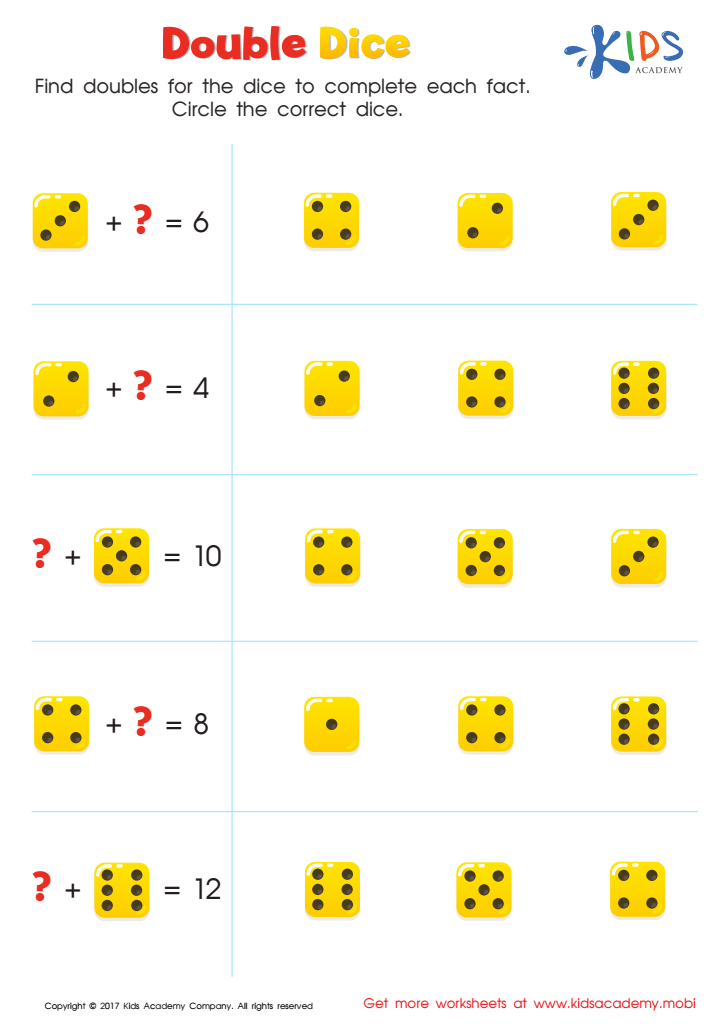

Addition Facts: Double Dice Worksheet
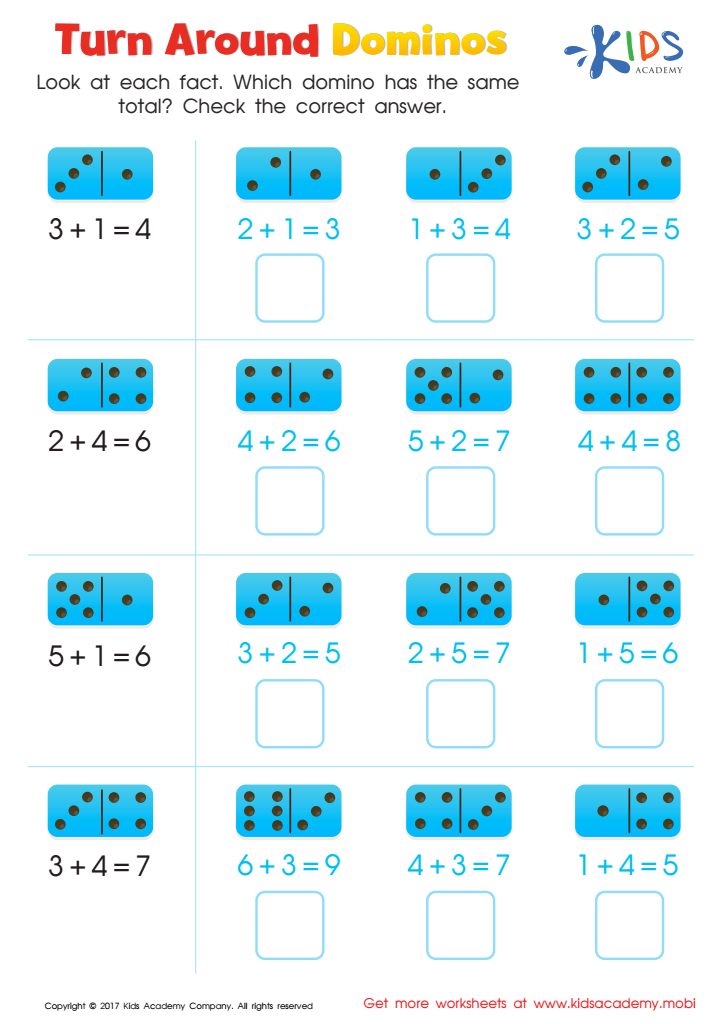

Turn Around Dominos Worksheet
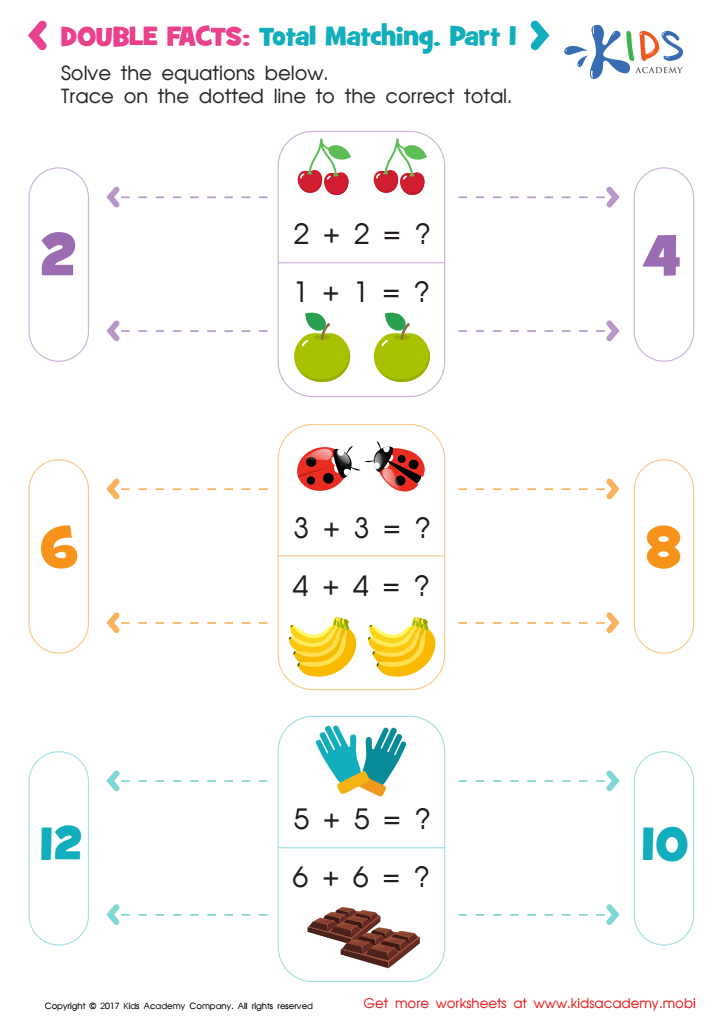

Double Facts: Total Matching Worksheet: Part 1


Addition and Subtraction: Word Problems Worksheet
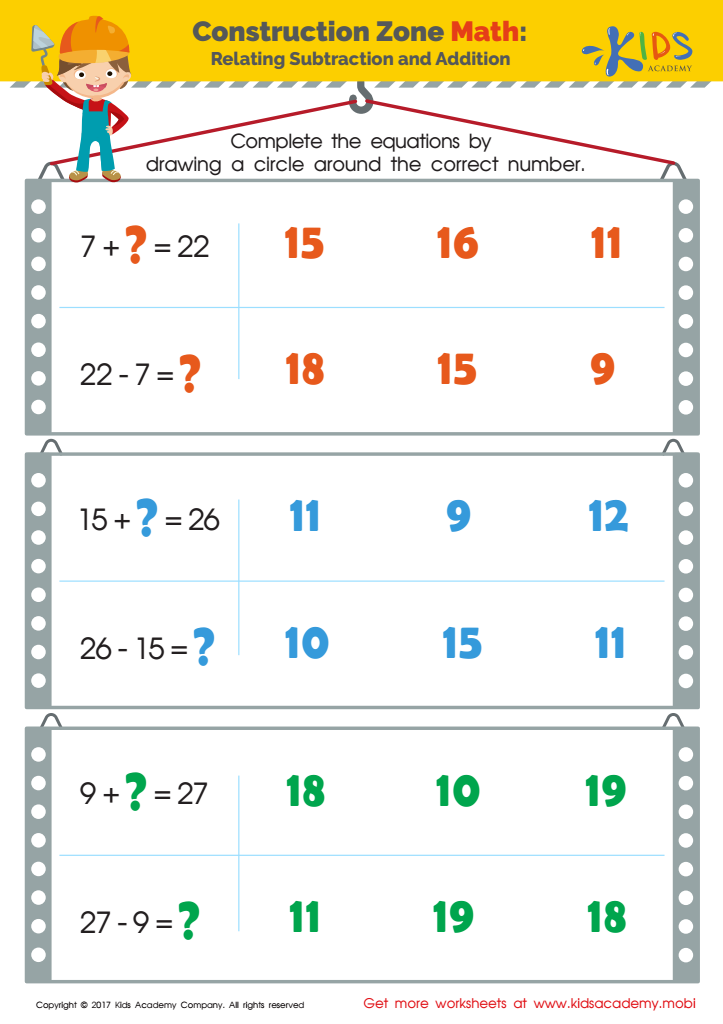

Related Addition and Subtraction Facts Worksheet
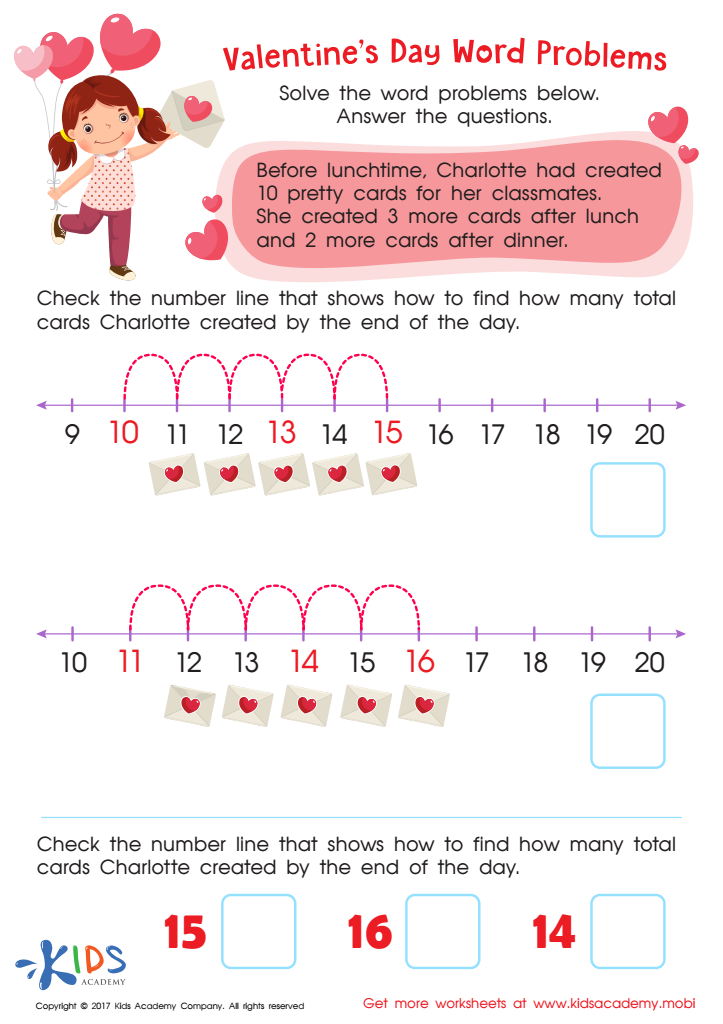

Valentines Day Word Problem Worksheet
Understanding normal addition at an early age sets the foundation for essential mathematical skills needed throughout a child's education and everyday life. For children aged 3-7, learning basic addition helps develop critical thinking and problem-solving abilities. When children grasp the concept of putting numbers together to find a total, they engage in mental processes that enhance logical and analytical reasoning.
Moreover, gaining confidence in addition supports number sense—a fundamental concept that allows children to comprehend what numbers mean and how they work in varying contexts. This early mathematical competence can lead to a positive attitude towards more complex math in later years, reducing math anxiety.
For parents and teachers, fostering these skills is crucial because they correlate with academic success in other areas. Math proficiency often links with better performance in subjects like science and technology. Early involvement in children’s arithmetic learning also allows teachers and parents to identify and support any learning difficulties early on, creating a more tailored educational approach that fits each child's needs.
Lastly, teaching normal addition at this stage can be fun and engaging through the use of games, visual aids, and practical scenarios, making learning a positive experience and promoting a lifelong enthusiasm for mathematics.
 Assign to My Students
Assign to My Students




.jpg)


.jpg)

